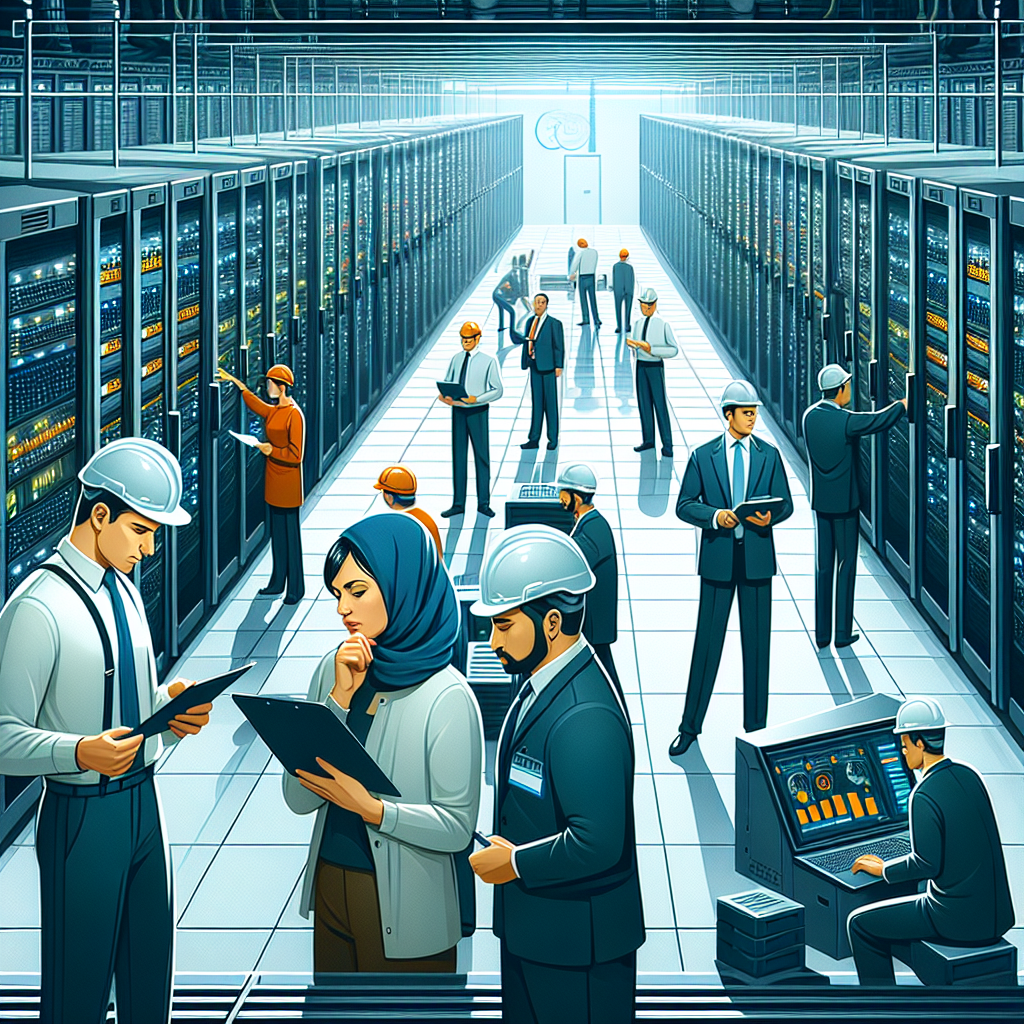Data centers are the backbone of modern businesses, housing critical IT infrastructure and data that are essential for day-to-day operations. Regular inspections of data centers are crucial to ensure that they are functioning optimally and are able to support the needs of the business. During a data center inspection, there are key elements that should be considered to ensure that the facility is operating efficiently and securely.
1. Physical Security: One of the most important elements to consider during a data center inspection is the physical security of the facility. This includes assessing access control measures, surveillance systems, and security protocols in place to protect the data center from unauthorized access. It is essential to ensure that only authorized personnel have access to the data center and that there are adequate measures in place to prevent breaches or theft.
2. Environmental Controls: Data centers generate a significant amount of heat due to the operation of servers and other IT equipment. Therefore, it is important to inspect the environmental controls in place to regulate temperature and humidity levels within the facility. Proper cooling systems and ventilation are essential to prevent equipment overheating and ensure that the data center operates efficiently.
3. Power Supply: Data centers rely on a consistent and reliable power supply to ensure uninterrupted operations. During an inspection, it is important to check the power distribution systems, backup generators, and UPS systems to ensure that they are functioning properly. Regular testing of backup power systems should be conducted to ensure that they are able to support the data center in the event of a power outage.
4. Fire Suppression Systems: Fire safety is a critical aspect of data center operations, as a fire can cause significant damage to equipment and data. Inspecting the fire suppression systems in place, such as sprinkler systems and fire extinguishers, is essential to ensure that they are functioning properly and can effectively mitigate the risk of a fire.
5. Cable Management: Proper cable management is essential in a data center to ensure that cables are organized and labeled correctly. During an inspection, it is important to check for any loose or damaged cables, as well as ensure that cables are not blocking airflow or creating safety hazards. Proper cable management not only improves the overall aesthetics of the data center but also helps to reduce the risk of downtime due to cable-related issues.
6. Compliance and Regulations: Data centers are subject to various regulations and compliance requirements, depending on the industry and location. During an inspection, it is important to ensure that the data center is compliant with relevant regulations, such as data privacy laws and industry standards. Regular audits and assessments should be conducted to ensure that the data center meets all necessary requirements.
In conclusion, conducting regular inspections of data centers is essential to ensure that they are operating efficiently and securely. By considering key elements such as physical security, environmental controls, power supply, fire suppression systems, cable management, and compliance, businesses can ensure that their data center is able to support their operations effectively. Investing in regular inspections and maintenance of data centers can help prevent costly downtime and ensure the continuity of business operations.


Leave a Reply